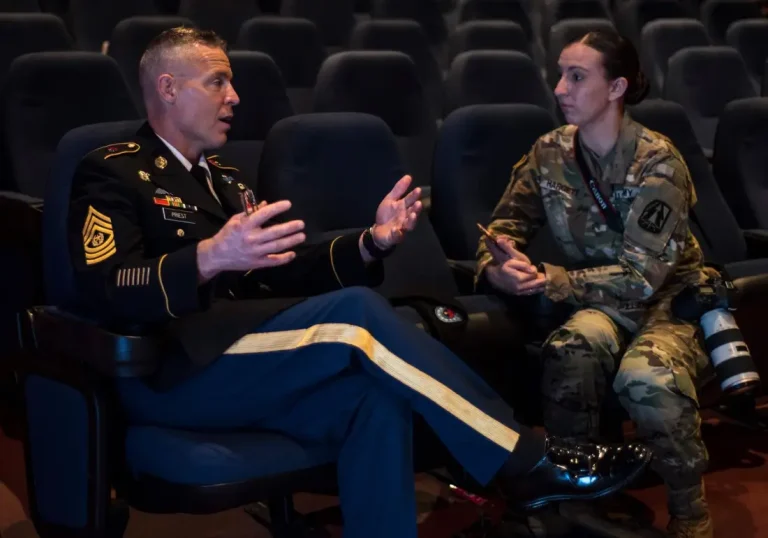The Unplanned Journey: A Story of Love, Abandonment, and Redemption
When unexpected pregnancy meets family rejection, one woman’s strength becomes a child’s foundation
The Foundation of Responsibility
At twenty years old, Emily Martinez had never been the kind of girl who attracted attention or caused worry. Growing up in Bakersfield, California, she had learned early that responsibility was not just a virtue but a necessity for survival. Her father’s sudden death from a heart attack when she was thirteen had thrust her into a role she had never asked for but had accepted with the quiet determination that would define her character.
The loss of her father had transformed their modest two-bedroom house from a place of security to a constant reminder of financial struggle. Her mother, Rosa, had taken a job at Mickey’s Diner downtown, working double shifts that left her exhausted and often absent. Emily had stepped into the gap without complaint, helping with household responsibilities while maintaining her grades and planning for a future that seemed increasingly uncertain.
Emily’s dreams were modest but firmly held. She wanted to study accounting at Bakersfield Community College, get a degree, and eventually help her family achieve the financial stability that had been missing since her father’s death. She had always been good with numbers, finding comfort in their predictability and logic. Unlike people, numbers didn’t change their meaning based on emotion or circumstance.
The accounting program at BCC was practical and affordable, allowing her to live at home while working part-time to help cover expenses. She had mapped out her future with the same methodical precision she applied to her mathematics homework—two years for her associate degree, transfer to a four-year university, graduation, and then a job with a steady paycheck and benefits.
Her social life was limited by both financial constraints and her serious nature. While her high school classmates had focused on parties and dating, Emily had spent her evenings working at various part-time jobs and studying. She had learned to find satisfaction in smaller pleasures—a good grade on an exam, a successful dinner prepared from clearance groceries, or a rare evening spent reading a library book.
The Summer That Changed Everything
The summer before her junior year at BCC, Emily took a job at Smoky Joe’s BBQ, a popular restaurant located near a large housing development that was under construction. The work was demanding—long hours in a hot kitchen, dealing with demanding customers, and the constant pressure to keep up with orders during busy periods. But the tips were good, and Emily needed every dollar she could earn.
The construction crew working on the nearby development became regular customers, arriving dusty and tired at the end of their workdays. Most of them were loud, boisterous men who flirted with the waitresses and left modest tips. Emily learned to navigate their attention with professional politeness while maintaining the boundaries that kept her safe and respected.
Jason Miller stood out from the rest of the crew not because he was louder or more aggressive, but because he was quieter and more respectful. He was tall and lean, with calloused hands that spoke of honest work and a shy smile that seemed genuine rather than calculated. His Southern drawl, remnant of his Arkansas childhood, gave his words a gentleness that contrasted with the harsh voices of his coworkers.
Unlike the other men, Jason always said “please” and “thank you,” left generous tips, and never made Emily feel uncomfortable with inappropriate comments or stares. He would order his food, eat quietly while reading a paperback novel, and leave without causing any disruption. His presence was calming in a way that Emily found unexpectedly appealing.
Their first real conversation occurred during a slow afternoon when Emily was refilling his coffee cup. She noticed the book he was reading—a biography of Harry Truman—and commented on it without thinking.
“That’s an interesting choice,” she said, gesturing toward the book.
Jason looked up, surprised that she had spoken to him about something other than his food order. “You know about Truman?”
“I took a history class last semester,” Emily replied. “He’s fascinating—the way he went from being a failed haberdasher to making some of the most important decisions in American history.”
The conversation that followed was unlike any Emily had experienced with her peer group. Jason was thoughtful and well-read, despite his lack of formal education. He shared her interest in history and asked questions about her college classes that showed genuine curiosity about learning.
The Courtship
What began as brief conversations during his meal breaks evolved into something more significant over the course of several weeks. Jason started arriving at the restaurant earlier, timing his visits to coincide with Emily’s slower periods when they could talk without interruption. He would bring books to share with her, and she would recommend titles from her college reading lists.
Emily found herself looking forward to these encounters with an anticipation that was both thrilling and concerning. She had never allowed herself to become emotionally invested in relationships, understanding that her responsibilities to her family and her education had to take priority. But Jason’s gentle nature and intellectual curiosity created a connection that felt different from the casual dating she had observed among her peers.
Their relationship deepened gradually and naturally. Jason began waiting for Emily’s shifts to end, offering to walk her to her car or to the bus stop. These walks became extended conversations about books, movies, dreams, and the challenges of growing up in working-class families. Jason spoke about his childhood in Arkansas, his complicated relationship with his parents, and his plans to eventually start his own construction company.
Emily shared her own dreams of financial security and professional success, her worries about her mother’s health, and her determination to create a better life for her family. Jason listened with the kind of attention that made her feel valued and understood in ways she had never experienced.
The physical relationship developed slowly, built on a foundation of emotional intimacy and mutual respect. Jason was patient and gentle, never pressuring Emily or making her feel uncomfortable. When they finally became intimate, it felt like a natural progression of their deepening connection rather than a casual encounter.
The Pregnancy Discovery
Emily discovered she was pregnant on a Tuesday morning in late August, three months after meeting Jason. The pregnancy test’s positive result sent her into a panic that lasted for hours. She sat in her bedroom, staring at the plastic indicator and trying to process the implications of what had happened.
At twenty years old, Emily had never seriously considered the possibility of unplanned pregnancy. She had been careful, but not careful enough. The realization that her carefully planned future had been derailed by one moment of biological reality was overwhelming and terrifying.
Her first instinct was to keep the pregnancy secret while she figured out what to do. She spent sleepless nights researching her options, calculating the financial implications of different choices, and trying to imagine how each decision would affect her family, her education, and her future.
When she finally told Jason, his reaction was everything she had hoped for and more. He held her while she cried, assured her that they would figure it out together, and immediately began talking about their future as a family. His response was so positive and supportive that Emily allowed herself to believe that this unexpected development might actually be a blessing in disguise.
“I love you,” Jason said, the first time either of them had spoken those words. “I want to marry you. I want us to raise this baby together.”
His plans were detailed and apparently well-considered. He would take her to Arkansas to meet his parents and get their blessing for the marriage. They would start fresh in a new place, away from the judgment and complications of their current situation. He spoke with such conviction and enthusiasm that Emily found herself caught up in his vision of their future.
The Journey to Arkansas
The trip to Arkansas was Emily’s first time leaving California, and the long drive through desert and farmland gave her time to imagine the life she and Jason might build together. He had described his hometown as small but welcoming, his parents as traditional but fair-minded people who would accept her once they understood the situation.
Jason’s confidence about his family’s reaction helped calm Emily’s natural anxiety about meeting his parents. She had spent her limited money on a modest dress that she hoped would make a good impression, and she had prepared answers to questions she imagined they might ask about her background and plans.
The town where Jason had grown up was smaller than Emily had expected, the kind of place where everyone knew everyone else’s business and strangers were immediately noticeable. Jason’s childhood home was a modest ranch house with a well-maintained yard and the kind of comfortable shabbiness that spoke of financial limitations but family pride.
Jason’s parents, Robert and Margaret Miller, were polite but distant during the introductions. They served dinner at a formal dining room table that was obviously reserved for special occasions, and the conversation was stilted and uncomfortable. Emily tried to be charming and respectful, but she could feel the weight of their disapproval settling over the evening like a heavy blanket.
When Jason finally revealed the reason for their visit, the temperature in the room seemed to drop ten degrees. Margaret Miller looked at Emily’s small but visible bump with undisguised contempt, and her next words destroyed any hope of acceptance or support.
“These days, girls sleep around,” she said, her voice cold and dismissive. “How do we even know it’s Jason’s?”
The accusation hit Emily like a physical blow. She had never been with anyone besides Jason, had never even had a serious relationship before meeting him. The implication that she was promiscuous and possibly trying to trap their son with another man’s child was so far from the truth that she couldn’t find words to respond.
Jason’s defense of her was half-hearted and ineffective. He assured his parents that Emily was a good girl and that the baby was definitely his, but he seemed more focused on placating them than on protecting her from their accusations. The conversation that followed was painful and humiliating, with Robert and Margaret making it clear that they would not support a marriage or welcome Emily into their family.
The Abandonment
The drive back to California was conducted in almost complete silence. Emily could feel Jason’s withdrawal beginning even before they reached the state line. The confident, loving man who had promised to build a life with her had been replaced by someone who seemed embarrassed by her presence and conflicted about their future.
The changes in Jason’s behavior were gradual but undeniable. Phone calls became less frequent, plans were cancelled or postponed, and his explanations became increasingly implausible. He claimed his parents needed more time to adjust to the idea, that he was working extra hours to save money for their future, that he was dealing with family complications that required his attention.
Emily wanted to believe his explanations, but her instincts told her that something fundamental had changed. The man who had once spent every free moment with her was now constantly busy with obligations that didn’t include her. When she tried to discuss their plans or the baby’s future, he would change the subject or make vague promises about “working things out.”
The final abandonment came not with a dramatic confrontation but with a gradual disappearance. Jason’s calls became weekly, then sporadic, then nonexistent. He stopped coming to the restaurant, stopped answering her messages, and eventually seemed to vanish entirely from her life.
Emily spent weeks in denial, making excuses for his absence and convincing herself that he would return once he had resolved whatever crisis was keeping him away. But as her pregnancy progressed and her need for support became more urgent, she was forced to accept the reality that Jason had chosen his family’s approval over his promises to her.
The Devastating News
Three months after Jason’s disappearance, Emily received a phone call that shattered any remaining hope she had harbored for reconciliation. Maria, one of her coworkers who had family connections in Arkansas, called with news that she had heard through her network of relatives and friends.
“Emily,” Maria said, her voice shaking with emotion, “Jason got married. Last weekend. Some girl from his hometown that his parents arranged for him to meet.”
The news hit Emily with the force of a physical blow. She had been abandoned not just temporarily but permanently, replaced by someone who met his family’s approval and fit into their vision of an appropriate wife for their son. The pregnancy that had seemed like the beginning of a new life together had become an inconvenience to be discarded.
Emily sat on a park bench for hours after receiving the news, staring at nothing and trying to process the magnitude of her situation. She was five months pregnant, had no support system, and was facing the prospect of raising a child alone while still being a child herself in many ways.
But rather than collapsing under the weight of despair, Emily found herself accessing a strength she hadn’t known she possessed. The abandonment hurt, but it also clarified her situation in a way that made her choices obvious. She would keep the baby, raise it alone, and build a life that didn’t depend on anyone else’s approval or support.
The New Beginning
Emily’s decision to start over in a new city was both practical and emotional. She couldn’t bear the thought of raising her child in Bakersfield, where she would constantly be reminded of her relationship with Jason and where people would ask questions she didn’t want to answer. She needed a fresh start in a place where she could create her own identity as a single mother.
Fresno offered anonymity and opportunities that her hometown couldn’t provide. She found a job in the office of a lumber mill, work that was steady if unexciting and that provided health insurance for her pregnancy. The pay was modest, but it was enough to cover rent on a small apartment and the basic necessities of life.
The loneliness was overwhelming at first. Emily had never lived alone, had never been responsible for making all of her own decisions without input from family or friends. The silence of her apartment in the evenings was sometimes so oppressive that she would turn on the radio just to hear human voices.
But gradually, she began to find comfort in her independence. She could eat what she wanted, watch what she wanted, and make decisions based solely on her own needs and preferences. The pregnancy gave her a sense of purpose that helped fill the emotional void left by Jason’s abandonment.
The Birth
Noah was born during a thunderstorm on a February night when Emily couldn’t reach the hospital in time. The contractions had come suddenly and intensely, and she had found herself giving birth in a cheap motel room with only the motel manager to call for emergency help. The experience was terrifying and painful, but it was also transformative.
Holding her son for the first time, Emily felt a love that was more intense and immediate than anything she had ever experienced. Noah was perfect—healthy and beautiful, with dark hair and the unmistakable green eyes that were his father’s legacy. But more than his physical beauty, he represented hope and possibility in a way that made all of her struggles seem worthwhile.
The name Noah came to her spontaneously, inspired by the biblical story of survival and new beginnings. Like the biblical Noah, she and her son were starting over after a devastating flood, building a new life from the remnants of what had been destroyed.
The early months of motherhood were exhausting and overwhelming. Emily had to learn everything from scratch—how to feed, bathe, and comfort a baby, how to function on minimal sleep, how to balance work responsibilities with childcare needs. There were nights when she cried from exhaustion and frustration, wondering if she was strong enough to handle the challenges of single parenthood.
But Noah’s presence in her life also brought joys she had never anticipated. His first smile, his first laugh, his first word—all of these milestones felt like personal victories that validated her decision to raise him alone. She developed a fierce protectiveness toward him that made all other concerns seem secondary.
The Struggle Years
The years that followed were marked by constant struggle but also by steady progress. Emily worked long hours at the lumber mill while juggling childcare responsibilities that often required creative solutions. When she couldn’t find or afford babysitters, she would bring Noah to work with her, strapping him to her back while she sorted invoices and answered phones.
Her coworkers were generally understanding and supportive, particularly the other women who had experienced similar challenges. They would take turns watching Noah during breaks, and more than one of them had offered to babysit during emergencies. The solidarity among working mothers became Emily’s primary source of emotional support.
Emily never returned to Bakersfield, too ashamed to face her mother’s questions about Noah’s father and too proud to admit that she had been abandoned. She sent occasional letters and photos, but she kept the details of her situation vague and maintained the fiction that she was doing well in her new life.
The shame she felt about her circumstances was complicated and persistent. She had always been the responsible one, the daughter who never caused problems or made poor decisions. The unplanned pregnancy and subsequent abandonment felt like personal failures that she couldn’t bring herself to discuss with anyone who had known her before.
Noah’s Childhood
Noah grew into a curious, intelligent boy who seemed to accept their unconventional family structure without question. He was accustomed to accompanying his mother to work, to entertaining himself while she completed household tasks, and to the reality that their family consisted of just the two of them.
Emily was determined to give Noah the best childhood possible despite their financial limitations. She read to him every night, helped him with homework, and made sure he understood that education was his pathway to a better future. She enrolled him in free activities at the community center and used the library extensively to supplement his learning.
The question of his father came up occasionally, usually prompted by school forms or conversations with other children. Emily had prepared a story about Jason dying when Noah was very young, a lie that felt kinder than the truth about abandonment. She dreaded the day when Noah would ask more detailed questions that she couldn’t answer without revealing the deception.
Noah’s physical resemblance to Jason became more pronounced as he grew older. The dark hair and green eyes were unmistakable, and Emily sometimes found herself staring at her son and seeing the man who had promised to love them both. The resemblance was both a blessing and a curse—a reminder of what might have been and what had been lost.
The Move to Santa Rosa
When Noah was twelve, Emily had saved enough money to make a down payment on a small house in Santa Rosa, California. The house was modest but represented a level of stability and security that she had never experienced as an adult. More importantly, it gave her the opportunity to start a small business that could provide additional income and more flexible scheduling.
The convenience store that Emily opened in the front room of her house was a practical solution to multiple challenges. It provided supplemental income, allowed her to work from home while Noah was in school, and gave her a sense of entrepreneurial accomplishment. The business was small but steady, serving the needs of their rural neighborhood.
Life in Santa Rosa was quieter and more predictable than their previous existence. Noah attended a good school, made friends, and began to develop interests and abilities that went beyond mere survival. Emily found herself able to relax for the first time in years, to believe that they had achieved a sustainable life that could provide opportunities for Noah’s future.
But even in their new stability, the shadow of Jason’s abandonment continued to affect their family. Emily had never dated or shown interest in romantic relationships, partly because she was too busy but also because she had lost faith in the possibility of finding someone who would accept both her and Noah without reservation.
The Teenage Questions
When Noah entered high school, his questions about his father became more pointed and persistent. He was old enough to understand that the story Emily had told him about his father’s death was vague and possibly incomplete. He began asking for specific details—where had his father died, how had it happened, why weren’t there any photographs or mementos?
Emily’s answers became increasingly evasive and contradictory. She claimed that discussing his father was too painful, that she had lost all the photographs in a move, that she preferred to focus on their present rather than the past. But Noah was intelligent and observant, and he began to suspect that there was more to the story than she was willing to share.
The tension between them grew as Noah’s questions became more insistent and Emily’s responses became more defensive. She could see that her son was struggling with issues of identity and belonging that were directly related to his father’s absence, but she couldn’t bring herself to tell him the truth about abandonment and rejection.
The breaking point came during a conversation Noah had with a friend on their front porch, which Emily overheard from the kitchen. Her son was explaining that he didn’t know much about his father, who had supposedly died when he was young. But then he mentioned something that made Emily’s blood run cold.
“Some guy from Arkansas who worked with my mom said I look just like a man named Jason who used to work with him,” Noah said to his friend. “It’s probably just a coincidence, but sometimes I wonder if there’s more to the story than Mom tells me.”
The mention of Jason’s name after seventeen years of silence sent Emily into a panic. She had thought that their past was safely buried, that no one from their old life would ever surface to complicate their new existence. But Noah’s casual mention of the conversation suggested that the truth was closer to the surface than she had realized.
The Unexpected Visitor
The next morning, as Emily was setting up the produce display for her roadside stand, she was approached by a woman she hadn’t seen in seventeen years but recognized immediately. Margaret Miller looked older and more frail than Emily remembered, but her presence was unmistakable and deeply unsettling.
“You’re Emily?” Margaret asked, her voice softer than Emily remembered from their first meeting.
“Yes,” Emily replied, her heart racing. “Do I know you?”
“I’m Jason’s mother.”
The simple statement hung in the air between them, loaded with seventeen years of history and pain. Emily felt the same sense of vulnerability and inadequacy that she had experienced in Arkansas, but this time she was not the frightened twenty-year-old who had been dismissed and rejected.
Margaret looked different—older, certainly, but also somehow diminished. The steel in her eyes had been replaced by something that looked like regret, and her posture suggested a woman who had been humbled by life’s disappointments.
“I’m in town visiting family,” Margaret continued. “I heard you were here. I… I want to meet Noah.”
The request was so unexpected that Emily needed a moment to process it. After seventeen years of silence, after the rejection and abandonment that had shaped her entire adult life, Jason’s mother was asking to meet the grandson she had once suggested might not even belong to her family.
“Why now?” Emily asked, her voice cracking with emotion. “To apologize? It’s too late for that. Do you have any idea what I’ve been through?”
Margaret bowed her head, and Emily could see that the older woman was struggling with emotions of her own. “I was wrong,” she said simply. “I pressured Jason to marry someone else because I thought it was what was best for him. She couldn’t have children, and they divorced last year. Jason… he died three months ago in a car accident.”
The Revelation
The news of Jason’s death hit Emily like a physical blow. Despite everything that had happened between them, despite the abandonment and betrayal, Jason had been her first love and the father of her child. The knowledge that he was gone forever closed a door that some part of her had apparently been keeping open.
“Before he died,” Margaret continued, “he told me about you and Noah. He said, ‘I have a son. If you still love me, please find them and ask for their forgiveness.’”
The image of Jason on his deathbed, finally acknowledging the son he had abandoned, was almost too much for Emily to bear. She had spent seventeen years building a life that didn’t depend on his presence or approval, but learning that he had thought of them at the end brought back all the pain and longing she had tried to bury.
Margaret handed Emily a small gift bag, her hands shaking slightly. “I don’t expect you to forgive me,” she said. “I just wanted you to know that Jason regretted what he did. He never stopped thinking about you and Noah.”
Emily took the bag but didn’t open it immediately. She was afraid of what it might contain, afraid that any memento or message from Jason would undo the emotional healing she had worked so hard to achieve.
That evening, after much internal debate, Emily decided to tell Noah the truth about his father. She couldn’t continue to lie to him, especially now that Jason was dead and could never hurt them again. The conversation would be difficult, but it was necessary for both of them to move forward.
The Truth Revealed
Sitting across from Noah at their kitchen table, Emily felt the weight of seventeen years of deception and protection. Her son was now almost the same age she had been when she met Jason, old enough to understand adult complexities and strong enough to handle difficult truths.
“Noah,” she began, her voice steady despite the emotional turmoil inside her, “there’s something I’ve never told you about your father.”
She told him everything—how she had met Jason, how they had fallen in love, how she had become pregnant and he had promised to marry her. She described the trip to Arkansas, the rejection by his parents, and the gradual abandonment that had followed. She explained why she had lied about his father’s death and why she had been unable to tell him the truth for so many years.
Noah listened in stunned silence, his expression moving through shock, anger, confusion, and finally a kind of sad understanding. When Emily finished her story, he asked only one question:
“Did he know about me?”
“Yes,” Emily replied. “He knew about you, but he never had the courage to be part of your life. And now he’s gone.”
The silence that followed was heavy with the weight of revelation and loss. Noah was processing not just the truth about his father but the realization that his entire understanding of his family history had been based on a lie, however well-intentioned.
That night, Emily heard Noah crying in his room—the first time she had heard him cry since he was a small child. The sound broke her heart, but she knew that this pain was necessary for healing. He needed to grieve not just for the father he had never known but for the fantasy of family that had been shattered by the truth.
The Journal
A week later, Margaret Miller returned with another gift—a worn leather journal that she said contained Jason’s final thoughts and reflections. Emily accepted it reluctantly, uncertain whether she wanted to read Jason’s words after so many years of silence.
That night, after Noah had gone to bed, Emily opened the journal and began to read. Jason’s handwriting was the same as she remembered, but his words carried the weight of years and regret:
“Emily, if you’re reading this, it means I’m gone and my mother has finally done what I should have done years ago. I’m sorry I left you alone to face everything. I was a coward—afraid of disappointing my parents, afraid of being judged by my community, afraid of responsibilities I thought I wasn’t ready for.”
The entries that followed detailed Jason’s years of regret and self-recrimination. He wrote about his failed marriage, his inability to have children with his wife, and his constant thoughts of the son he had abandoned. He described driving to Santa Rosa several times over the years, seeing Emily from a distance but never finding the courage to approach her.
“I saw you once,” he wrote, “carrying groceries with a toddler in your arms. He had my eyes, and I knew he was my son. I wanted to run to you, to fall on my knees and beg for forgiveness. But I couldn’t move. I sat in my car and watched you disappear into a store, and then I drove home and drank for three days.”
The most painful entry was the last one, written apparently just before his death:
“I have no right to ask for forgiveness from you or from Noah. But I want him to know that he had a father who loved him, even from a distance. I want him to know that not a day passed when I didn’t think of him and wonder what kind of man he was becoming. I want him to know that my greatest regret is not having the courage to be part of his life.”
Attached to the back cover of the journal was a photograph of Jason in a hospital bed, obviously taken near the end of his life. Around his neck was a blue string necklace that Emily had crocheted for him during their brief courtship—a simple gift that he had apparently kept for seventeen years.
The Healing
For the first time in seventeen years, Emily allowed herself to grieve fully for what had been lost. She wept not just for Jason’s death but for the family they might have been, for the father Noah had never known, and for the years of pain and struggle that might have been avoided if Jason had been braver.
But the grief was accompanied by a sense of closure that she had never expected to feel. Jason’s regret and acknowledgment of his failures didn’t erase the pain he had caused, but it did provide a context that made forgiveness possible. He had been weak and cowardly, but he had also been young and frightened, pressured by family expectations and social conventions that he hadn’t been strong enough to resist.
Emily shared the journal with Noah, who read it with the same mixture of pain and understanding that she had experienced. The knowledge that his father had thought of him and regretted his absence didn’t compensate for seventeen years of absence, but it provided some comfort and context for his loss.
The healing process was gradual and complex. Both Emily and Noah had to adjust their understanding of their family history and their own identities. But the truth, however painful, was ultimately liberating. They no longer had to maintain the fiction of Jason’s early death or wonder about what might have been.
The Pilgrimage
Several months after learning of Jason’s death, Emily and Noah made the journey to Arkansas to visit his grave. The trip was both a pilgrimage and a farewell, an opportunity to say goodbye to the man who had shaped their lives through both his presence and his absence.
The small cemetery where Jason was buried was peaceful and well-maintained, located on a hillside overlooking the town where he had grown up. His grave was marked by a simple headstone that listed his name, dates, and the inscription “Beloved Son and Brother.”
Noah knelt to place flowers on the grave, his voice trembling as he spoke to the father he had never known. “I don’t blame you,” he said. “But I need you to know that I turned out okay. Mom made sure of that.”
The moment was both heartbreaking and healing. Emily watched her son speak to his father’s grave and felt proud of the young man he had become despite the challenges they had faced. His maturity and compassion were testaments to the strength they had both developed through their struggles.
As they prepared to leave, Noah turned to Emily and hugged her tightly. “I don’t need a father,” he said. “I’ve always had the bravest person in the world.”
His words were both a tribute to her strength and a recognition of the bond they had forged through years of facing challenges together. Emily realized that while Jason’s abandonment had been devastating, it had also forced her to become the person she was meant to be—independent, strong, and capable of providing everything her son needed.
The New Understanding
The visit to Jason’s grave marked the end of one chapter in their lives and the beginning of another. Emily and Noah returned to Santa Rosa with a new understanding of their family history and their own resilience. They had faced the truth about Jason’s abandonment and found ways to forgive both him and themselves.
Margaret Miller became a regular correspondent, sending letters and cards that gradually built a relationship with the grandson she had once rejected. The relationship was tentative and careful, but it provided Noah with a connection to his father’s family that he had never had before.
Emily found that learning the truth about Jason’s regret and his inability to overcome his fears had actually strengthened her sense of self-worth. She had not been abandoned because she was unworthy of love, but because Jason had been too weak to stand up to his family’s expectations and societal pressures.
The experience also helped Emily realize that she had been living in a kind of emotional isolation, afraid to trust others because of the pain Jason had caused. With the truth finally revealed and forgiveness achieved, she began to consider the possibility of opening her heart to new relationships and experiences.
The Continuing Journey
As Noah prepared to graduate from high school and begin his own adult life, Emily reflected on the journey they had taken together. The unplanned pregnancy that had seemed like a disaster when she was twenty had become the foundation for a life that was rich in love, challenge, and personal growth.
Noah had grown into a young man of character and compassion, shaped by the struggles they had faced together but not defined by them. He had learned the value of hard work, the importance of education, and the strength that comes from facing adversity with courage and determination.
Emily had evolved from a frightened twenty-year-old into a successful businesswoman and devoted mother. She had built a life that was stable and fulfilling, proving to herself and others that single parenthood didn’t have to mean failure or limitation.
The relationship between mother and son had been tested by revelation and grief, but it had emerged stronger and more honest. They had learned to communicate openly about difficult topics and to support each other through challenges that might have broken a less committed family.
The Lessons Learned
The story of Emily and Noah’s journey together had taught them both valuable lessons about love, forgiveness, and the strength of the human spirit. They had learned that abandonment, while painful, didn’t have to be permanent or defining. They had discovered that truth, however difficult, was ultimately more healing than comfortable lies.
Emily had learned that she was capable of far more than she had ever imagined when she was a twenty-year-old facing unplanned pregnancy. She had found strength she didn’t know she possessed and had built a life that was meaningful and successful by any measure that mattered.
Noah had learned that families come in many forms and that the love of one devoted parent could provide everything a child needed to grow into a healthy, confident adult. He had also learned that forgiveness was possible even when the person who had hurt you was no longer alive to make amends.
Both had learned that the most important relationships are those that are chosen and maintained through commitment and effort, not those that are imposed by biology or social convention. Their bond had been forged through shared challenges and mutual support, making it stronger than many families that had never faced such difficulties.
The Legacy
As Emily looked toward the future, she saw endless possibilities for both herself and Noah. He was preparing to attend college on a scholarship, planning to study business and eventually take over the family convenience store. She was considering expanding her business and perhaps even exploring the romantic relationships she had avoided for so many years.
The fear that had dominated her twenties and thirties had been replaced by confidence and optimism. She had proven to herself that she could handle whatever challenges life might bring, and she had raised a son who shared her resilience and determination.
The story of Jason’s abandonment had become part of their family history, but it was no longer the defining narrative. Instead, their story was one of triumph over adversity, of love conquering fear, and of the possibility of building a meaningful life even when circumstances seem impossible.
Margaret Miller’s late-in-life attempt to make amends had provided closure and healing, but it had also confirmed what Emily and Noah already knew—that their family was complete and strong exactly as it was. The addition of Jason’s family as distant relatives was welcomed but not needed for their happiness or sense of belonging.
Conclusion: The Power of Chosen Love
The journey from unplanned pregnancy to successful single parenthood had been long and difficult, but it had also been transformative in ways that Emily could never have imagined as a frightened twenty-year-old. The love she had chosen to give her son, despite the circumstances of his conception and the absence of his father, had created a family that was stronger and more resilient than many traditional families.
Noah’s success as a young man was testament to the power of devoted, unconditional love. He had thrived not because he had two parents or because his circumstances were easy, but because he had one parent who was completely committed to his wellbeing and success.

Emily Johnson is a critically acclaimed essayist and novelist known for her thought-provoking works centered on feminism, women’s rights, and modern relationships. Born and raised in Portland, Oregon, Emily grew up with a deep love of books, often spending her afternoons at her local library. She went on to study literature and gender studies at UCLA, where she became deeply involved in activism and began publishing essays in campus journals. Her debut essay collection, Voices Unbound, struck a chord with readers nationwide for its fearless exploration of gender dynamics, identity, and the challenges faced by women in contemporary society. Emily later transitioned into fiction, writing novels that balance compelling storytelling with social commentary. Her protagonists are often strong, multidimensional women navigating love, ambition, and the struggles of everyday life, making her a favorite among readers who crave authentic, relatable narratives. Critics praise her ability to merge personal intimacy with universal themes. Off the page, Emily is an advocate for women in publishing, leading workshops that encourage young female writers to embrace their voices. She lives in Seattle with her partner and two rescue cats, where she continues to write, teach, and inspire a new generation of storytellers.









